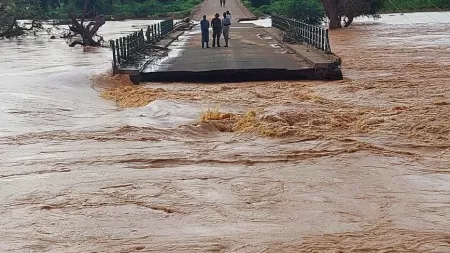This year’s rainy season has been particularly devastating so far for the population of Niger. Over the last three months (through August 19), flooding across the country – exacerbated by climate change – has forced 353,000+ people from their homes, washed out roads, and tragically killed 217 and wounded 200. The regions of Maradi, Zinder, and Tahoua have been the worst hit.
In addition to the loss of life, property, and infrastructure, the impacts on livelihoods and food security will be particularly acute. The flood waters have also killed 16,900+ livestock and destroyed over 3,000 hectares of crops and 21.5 tons of food. The increased risks of waterborne diseases – including cholera and malaria – pose an added threat. While these impacts are significant, more rain is expected in the coming weeks. The rainy season in Niger lasts until the end of September.
"Niger is a nation already facing a convergence of climate change, conflict, political instability, and hunger."Yawo Douvon, CARE Niger-Burkina Faso, Country Director
CARE teams in Niger are mobilizing a response to the flooding alongside local partners, with a focus on food, cash, non-food items, shelter kits, as well as water, sanitation and hygiene. This week CARE teams provided cash transfers to affected families in Maradi.
"Niger is a nation already facing a convergence of climate change, conflict, political instability, and hunger. As a result of these factors, more than 4.3 million Nigeriens rely on humanitarian aid to survive, 404,000 of whom are internally displaced. 3.7 million in Niger face severe food insecurity," says Yawo Douvon, CARE Niger-Burkina Faso, Country Director.
For media inquiries, email: [email protected]
